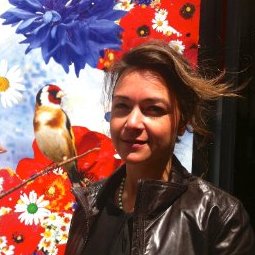New networks in the starting blocks!
Edited on
21 June 2019Ready, steady, go… and take a look at the 21 projects that started phase 1 of their project September 2015.

With the launch of the first action-planning networks, URBACT III is now entering in full implementation mode. The response of cities to the first call for proposals opened in spring has been very high: 99 network applications were submitted, involving no less than 111 cities across Europe. Building on the qualitative assessment of proposals by a panel of 7 independent experts, Member and Partner States gathered in Luxembourg on 11 September 2015 approved 21 projects. These projects are now entering their 6-month “development phase” and will be completing their partnerships. Another window of opportunity for more cities to join so let’s take a tour of the urban issues these networks are willing to address.
Cities have come to URBACT to address a vast array of policy challenges related to sustainable urban development. The 21 networks selected reflect this diversity, yet showing interesting trends in the kind of response cities are willing to explore.
In times of increasingly scarce resources, the need to recover unused urban assets is getting higher and higher on cities’ agenda. No less than 4 action-planning networks are proposing to deal with this issue: “Second chance”, intending to rehabilitate underused buildings in city-centres; “Disarmed cities”, focusing on dismissed military sites; “Growth by reconversion” and “Refill” exploring new planning practices to increase urban density, including temporary use. Close to this cluster of network, the “Vital Cities” project will allow partner cities to rethink the design of public spaces for recreation purposes, targeting the less active and deprived urban dwellers.
European cities are also more and more active in the field of economic development, exploring ways to support local businesses and entrepreneurship so as to foster local employment. At least 5 networks will gather cities to develop integrated action plans to enhance local urban economies, whether focusing on specific sectors (eg food in the “Agri-Urban” network, the digital economy in “TechTown”, retail in “Retailink”), smart specialisation strategies (“Urban3S”), targeting specific groups (eg young people in the “Gen-Y-City” network and neighbourhood communities in “Urban Green Labs”) or specific areas (eg city centre in “CityCentreDoctor”).
Interestingly enough, urban governance is now per se an area of cooperation for cities across Europe: finding new ways to approach urban problems, new instruments and partnerships for more efficient public services and policy responses. Over time, URBACT has become a platform for cities to deal with the necessary changes in local administrations’ ways of working. From collaborative public services (see the “Change” network) to open innovation (“BSinno”), smart public procurement (“CLEO”) and smart city technologies (see the “CSCD” and “Interactive Cities” projects), local authorities are rethinking their modus operandi.
In this first round of action-planning networks, environmental issues will be addressed mainly in networks dedicated to sustainable transports (with a focus on freight in “Freight Tails” or wider mobility strategies such as in the “SUMP network”), the food chain (“Agri-Urban”) and most of all, limiting urban sprawl by increasing urban density (see above).
Last but not least, URBACT will support cities in dealing with 2 crucial and global urban challenges: increasing cities’ resilience, with the “Resilient Europe” network and managing growing migrant populations in cities, with the “Arrival cities” network.
You can find the list with all the 21 networks and the contact details here.
Further calls for proposals shall be launched current 2016, dedicated to the other types of networks that are new to URBACT. More especially, the 1st call for the creation of “Implementation networks” that will support cities with the implementation of integrated urban strategies is scheduled in March 2016. So stay tuned!
Photo credits: tableatny on flickr
 Submitted by Melody Houk on
Submitted by Melody Houk on
